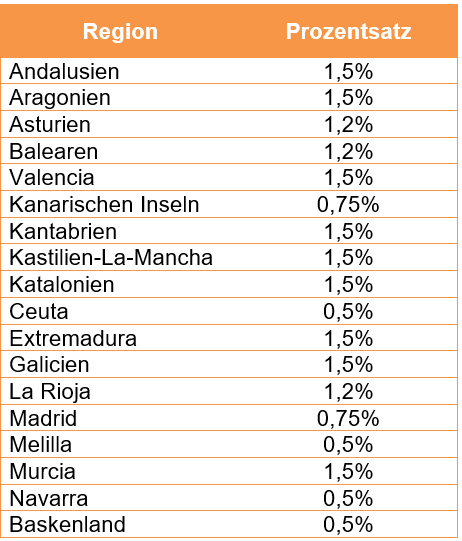

Are you thinking of buying a Spanish property, but you have doubts about the taxes you will have to pay for your future vacation home? No problem, we are happy to explain here what taxes you have to pay during and after the purchase of a Spanish property.
Even if you don’t live in Spain, various taxes apply if you own property in Spain or at least plan to buy one. It does not matter whether you buy the Spanish property for personal use or as an investment.

2.Purchase of a second hand property: On the other hand, if you buy a second hand real estate, the following taxes are applying:

What taxes are due after buying a property in Spain?
Even after the purchase of a Spanish property, the following taxes are due as a non-resident.
Note that depending on the laws of the country, you may have to declare your worldwide income on your tax return in the country where you are registered for tax purposes. We recommend that you seek the advice of an expert here to avoid any inconvenience later on.
If you would like more information about Spanish real estate subscribe here to our monthly newsletter.
Copyright © 2024 Pienzenauer Spain. All rights reserved.